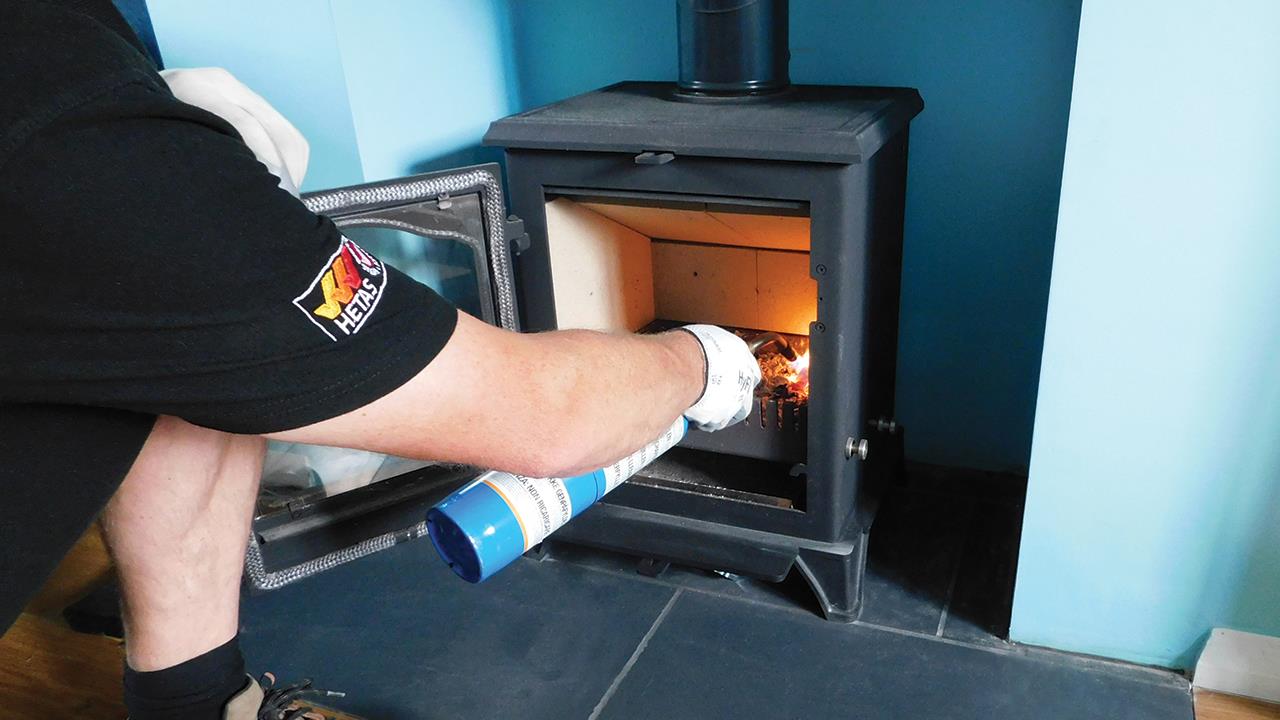

With new rules governing fuel and appliances on the horizon, Bruce Allen, Chief Executive at HETAS, helps clarify the changing terminology for installers to ensure their customers can choose with confidence.
Coal and wet wood are some of the dirtiest fuels used for home heating and the government has taken action to ensure the country’s two million solid fuel appliances use cleaner and more efficient fuels.
Steps announced earlier this year will remove coal and wet wood from sale within the next two years to help deliver on national and international air quality obligations, recommendations, and commitments.
Installers also need to become familiar with changing regulations for solid fuel, wood, and biomass appliances. Having already moved to Ecodesign compliance for independent biomass boilers in 2020, the industry is already gearing up to comply with Ecodesign standards which will set new minimum seasonal efficiency and maximum emission requirements for stoves and fireplaces from 1 January 2022.
The emissions standards referred to and testing methods required in Ecodesign Regulation are different to current compliance requirements for CE marking under the Construction Products Regulation. The requirements for manufacturers’ installation and use instructions are also different. Only appliances that have been tested and verified to meet the new requirements will be sold and installed legally in the UK after the implementation date.
In simple terms, Ecodesign is a European regulation for reducing the environmental impact from particulates and greenhouse gases. Its aim is to reduce particulate matter (PM) released into the atmosphere and improve air quality. Controlled emissions also include carbon monoxide (CO), organic gaseous compounds (OGC), and nitrogen oxides (NOx).
From 1 January 2022, all solid fuel burning appliances will be required to have been independently tested to show that they meet the new Ecodesign limits for seasonal efficiency and emissions. For example, a closed wood-burning appliance will still need to meet 65% seasonal efficiency, but also meet four additional maximum emissions limits for CO at 1,500mg/m3, PM at 40 mg/m3, OGC at 120 mg/m3, and NOx at 200 mg/m3. These figures vary depending on appliance and fuel type.
The only current emission performance limits for room-heater appliances complying with the Construction Products Regulations stipulate a maximum emission limit of CO at 12,500mg/m3. This means some limits will become more stringent and additional limits will be introduced.
Solid fuel dry room-heater appliances are currently required by the Building Regulations to meet minimum gross efficiency limits of 65% when operated at the appliance’s nominal heat output, and this increases to 70% for pellet room heater appliances due to their higher level of controllability.
Another initiative installers should be aware of is Ecodesign Ready. It is a Stove Industry Alliance (SIA) initiative developed in partnership with manufacturer trade association members. The stoves have been independently tested by an approved test laboratory to meet the emissions and minimum efficiency criteria for Ecodesign. The test results have also been verified by HETAS.
The Ecodesign Ready label was applied to wood burning appliances that were verified by HETAS as meeting the five fundamental Ecodesign requirements; seasonal efficiency, NOx, CO, PM, and OGCs.
This initiative shows that SIA stove manufacturer members are committed to meeting some of the Ecodesign requirements earlier than 2022, promoting the purchase of cleaner and more efficient stoves that contribute to improving the environment through lower emissions.
However, installers and buyers need to know that this is not intended to imply that these stoves meet all other future requirements of Ecodesign regulations, and manufacturers are not claiming the appliances have been assessed for full compliance.
As HETAS assists the industry in preparing for full compliance of stoves in less than two years’ time, we have reviewed and further developed the HETAS Approved appliance scheme and launched the first full Ecodesign Compliant appliance scheme for independent boilers adding stoves, stove/boilers, and fireplaces soon after. We believe that having appliances assessed by an independent and impartial third-party verification scheme is fundamental in giving installers and homeowners confidence in choosing a fully Ecodesign compliant stove. It is also a trusted mark of approval for product manufacturers.
As we move towards full compliance for boilers and stoves, we recognise that consumers, installers, manufacturers, retailers, specifiers, and local authorities need to be kept up to date with the latest developments.
If you'd like to keep up-to-date with the latest developments in the heating and plumbing industry, why not subscribe to our weekly newsletters? Just click the button below and you can ensure all the latest industry news and new product information lands in your inbox every week.